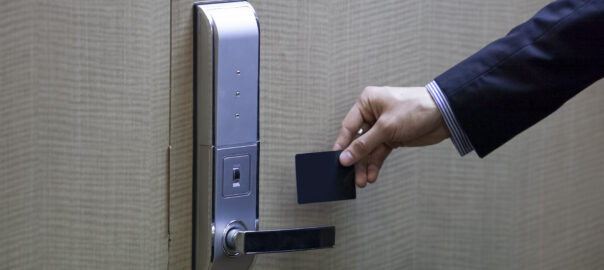Today, the security of a building, the control and verification of access are essential issues to ensure the peace of the occupants of a building.
More and more companies must equip all of their buildings with access control both for legal reasons, but also to monitor and control traffic and occupancy of local.
The challenge for companies is now to make the journey of each user more fluid when faced with this control and to lift all the brakes for all users.
Let’s get back to the basics first
Tenant management system is a security technique used to determine and filter the users authorized to access a specific resource, whether physical or digital.
Each access authorization is therefore intended to protect the people, property and information of a company.
Access control is often implemented by professionals:
- In companies of all sizes: at the entrance to the building, the company.
- In sensitive areas: confidential areas, rooms reserved for servers, etc.
- In shared spaces: co-working spaces, business centres, car parks, changing rooms.
Optimizing the customer journey, a major challenge
Conventionally, access control is done using a key, a badge per person, a unique code for each person (and sometimes even per zone) or via a biometric device; these more or less ancestral techniques very often represent a slowdown in the arrival of users and a source of discontent.
For example, badges are seen as a constraint for 98% of employees.
What’s more, who has never forgotten their badge or key and never stayed outside waiting for a colleague to arrive to finally enter a building?
Today, access control and management can be done 100% digitally: everyone’s unique, personalized and secure access can now be found in their smartphone.
The good news in view of this observation is that mobile control office access increases physical security tenfold; all users (end users but also decision-makers) benefit from it.
Information security and physical security
If no system is fool proof, some modes of access control are obviously more vulnerable than others.
And when the design of the tenant management system respects the 5 fundamental principles of security (confidentiality, integrity, availability, non-repudiation, authentication), decision-makers and users opt for the most practical mode, that of which everyone has finally already in their pocket … the smartphone!
In addition, completely dematerializing access has many advantages for the manager but also for the user.
For the manager
- Remote management: add, modify or revoke one or more accesses in a few clicks from your office;
- Lightening of daily tasks: 100% digital access control can be interfaced with your management tools already in place;
- Dematerialization of access authorizations: No more badges or physical support, no more uncontrolled stock, no more loss…;
- Real-time activity monitoring.
For the user
- Access all the entrees to which he is authorized in just a few seconds with his smartphone, in complete autonomy;
- Being able to anticipate your trips: access can be granted before a visit, an appointment or even a reservation;
- Benefit from associated services: guidance, map, practical information, contacts … all on a single medium: your mobile.
